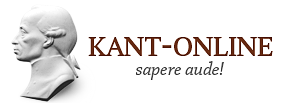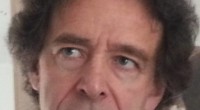Nelly Motroshilova about translations and translators
Within the expert survey on the priorities of Kant studies Professor Nelly V. Motroshilova talked to www.kant-online.ru on why one needs to be able to read Kant in the original, and what kind of interpreters for his works are required in Russia.
— Dear Nelly, please tell us, in your opinion, what are the priorities facing Kant studies in the light of the upcoming Kant’s 300th anniversary?
— The first task concerns the sources of information, new facts and the latest research on Kant’s life and philosophy. I believe this basis is most important for the history of philosophy.
Unfortunately, in our modern history of philosophy, very little attention is paid to the sources of this kind. Most significantly, to all of Kant’s classical texts and their various editions that Kant researchers must read in the original language. Some authors, and even historians of philosophy, do not believe that it is important. In my life I have met all sorts of people who believe that one can write a book on Kant, without reading his original texts.
For example, a person comes to me and says he/she wants to study Kant or Hegel. I ask: “How is your German? Can read texts in the original?”. “Why read the original? After all, there are translations,”- they answer. With Kant, it is true, the translations are ultimately good, but with Hegel they are generally a disaster.
In my opinion, there are no two ways about it: if one is engaged in research, writes a thesis, a book, an article on Kant, Hegel, Aristotle, then they must start by reading their works in the original language. At least they have to be able to compare the translation and the original. Some classic translations can and should be used. But they can always let you down. Even very good translations.
— What kind of “traps” can await those who only work with translated texts?
— I have this problem covered in detail in the first volume of our bilingual edition of Kant. There is an active historical dynamics for the translations to improve. It is partially objective. If you take the first Russian translation of Kant’s works that were published, for example, in the XIX century, they are now completely “antique” because the language was quite different. This dynamics even applies to the translations considered satisfactory for their time, such as Lossky’s translations.
— Perhaps it would be reasonable to make one good verified translation that each researcher could safely rely on it?
This is impossible: there is no translation correct for all historical times. For translation also depends on the understanding, the penetration into the conception, the meaning of the philosopher’s notions, and they are constantly improving.
And, thank God, now there are no canonical translation, as in Soviet times, it is a competitive area. I think there should be two or three translations that are proposed for consideration and use, and professionals can choose what suits them better.
A considerable number of professionals work on translations. They need special meetings, seminars. For example, there may be debate about the translation of some of the fundamental Kantian categories. There is a kind of tradition, and we, that is, members of the community, believe that it should be corrected. And maybe other people think that no correction is needed. Another view is also justified …
This does not mean that someone can convince me, though, to accept the translation of “Ding an sich selbst” as a “thing-in-itself”. But, at least, we will know why someone believes that it is necessary to change it, and someone believes that we shouldn’t. But only competent people should participate in this discussion. Sometimes a person who speaks little or no German enters the discussion. I believe that it is inappropriate. It is necessary to communicate on a certain philosophical and linguistic basis. In this issue there are discussions of great importance that concern the slightest shades of meanings. They will probably seem a bit exotic for most readers and even for individual Kant researchers, but those who work in this field, should listen to such discussions.
The same applies to such practical things as comparing translations from German to other languages. For example, when I was doing my version of the translation of “Critique of Pure Reason” for a bilingual edition, I had the English translation on the desk to my right, French – to my left, and Italian in a little distance. When faced with some difficult and controversial cases, I checked how my colleagues had translated Kant into another language. However, there are languages in which it is impossible to achieve accuracy, simply because they do not have certain concepts. For instance, the term Gegenstand is impossible to be adequately conveyed in both English and Italian. But at least the translators mention this. Esposito, the Italian translator of “Critique of Pure Reason”, who made a good translation, said that there is no such word in their language because … the language is very ancient. Such details are important for modern interpreters.
All this applies to a non-mass, but integral part of the modern Kant studies – translations and the search for sources, the interpretation of terms. All this should be done on the basis of the philosophy of language. For example, the deduction of the categories within Kant’s or Hegel’s conception is an integral part of their teachings, but then what these categories are, what they are called in Russian – this should be determined by experts (at least taking the differences into account) – otherwise we will not understand what we are talking about.
— What other problems could you distinguish?
— Among the interesting issues there is a problem with the definition of the relation between Kant’s life, his development as a person, as a citizen of his time, age, state, and his works. How did time express itself in Kant’s works, and how did he try to make sense of his time? I believe, this area is significantly understudied. In general, all the problems look differently for Russian and German Kant studies, which is, in my opinion, at a very high level in all its aspects.
We are still more provincial. Sometimes someone writes about Kant, as if no sort of works about him have ever existed in this world. As if Kant studies are being creating anew … But this is not true. Fortunately we now have formed a whole cohort of young researchers as well – those who publish Kant’ works, and those who comment on these works, and those involved in various aspects of Kant studies in close contact with the world Kant studies.
I noted at the same time that international contacts appeared and developed quite intensively during the Soviet era. For example, in 1974, X International Hegel Congress took place in Moscow. The researchers from Hegel Vereinigung, who then came to us it were also Kant researchers, people who, in fact, were engaged in the German classical philosophy and are now . Unfortunately, some of them have died.
For example, it is extremely sad that Burkhardt Tuschling, an outstanding Kant and Hegel researcher, died. In 1991 he and I worked on a bilingual edition of Kant’s Collected Works. By the way, it was his idea. We met in Tyrol, where we were visiting a conference dedicated to “Critique of Judgment.” Then or later Tuschling came up with the idea of a bilingual edition. Then he came to Russia and shared his thoughts in the company of Tamara Dlugach (member of our staff, who also did a bilingual edition). However, later Tushling admitted that he did not believe his bold idea could ever be fulfilled. We picked up the idea and began to work on the publication. The first volume was published in 1994. Seven books were published in total. The publication continues. This was the first publication of this kind in Russian history; even by now our bilingual edition is the most extensive and specialized in different ways in the whole world among such editions.
Now we are developing the idea that maybe together with Kaliningrad we will work on the new Russian edition of Kant’s works on the basis of the high-quality works of good Kant researchers and translators, adding later translations into Russian and sometimes making new versions of the translations … By the way, there are relatively few works that have never been translated. But this project is currently in the process of organizational thinking.
— What kind of specialists are required today for the preparation of good translations of Kant’s works?
First of all, of course, translators with a very good knowledge of German. (Besides, we also intend to work on some untranslated essays in Latin). But a translator should also have a keen understanding of Kant’s philosophical language. Knowledge of Russian philosophical language is also vital. After all, the way some modern translators write in Russian is a disaster!
Then, translators should have a good knowledge of Kant’s philosophy. Such specific work cannot be conducted without having a clue about his philosophy.
In addition, one should have time for teamwork. Even for such work, which can be called training – seminars, where experts would gather to discuss existing and new translations. After all, there are experts who have already gained some experience working on translations. Therefore it is necessary for the younger generation of researchers who are willing and able to work to have undergone appropriate training.
Interview prepared by Valentin Balanovsky





